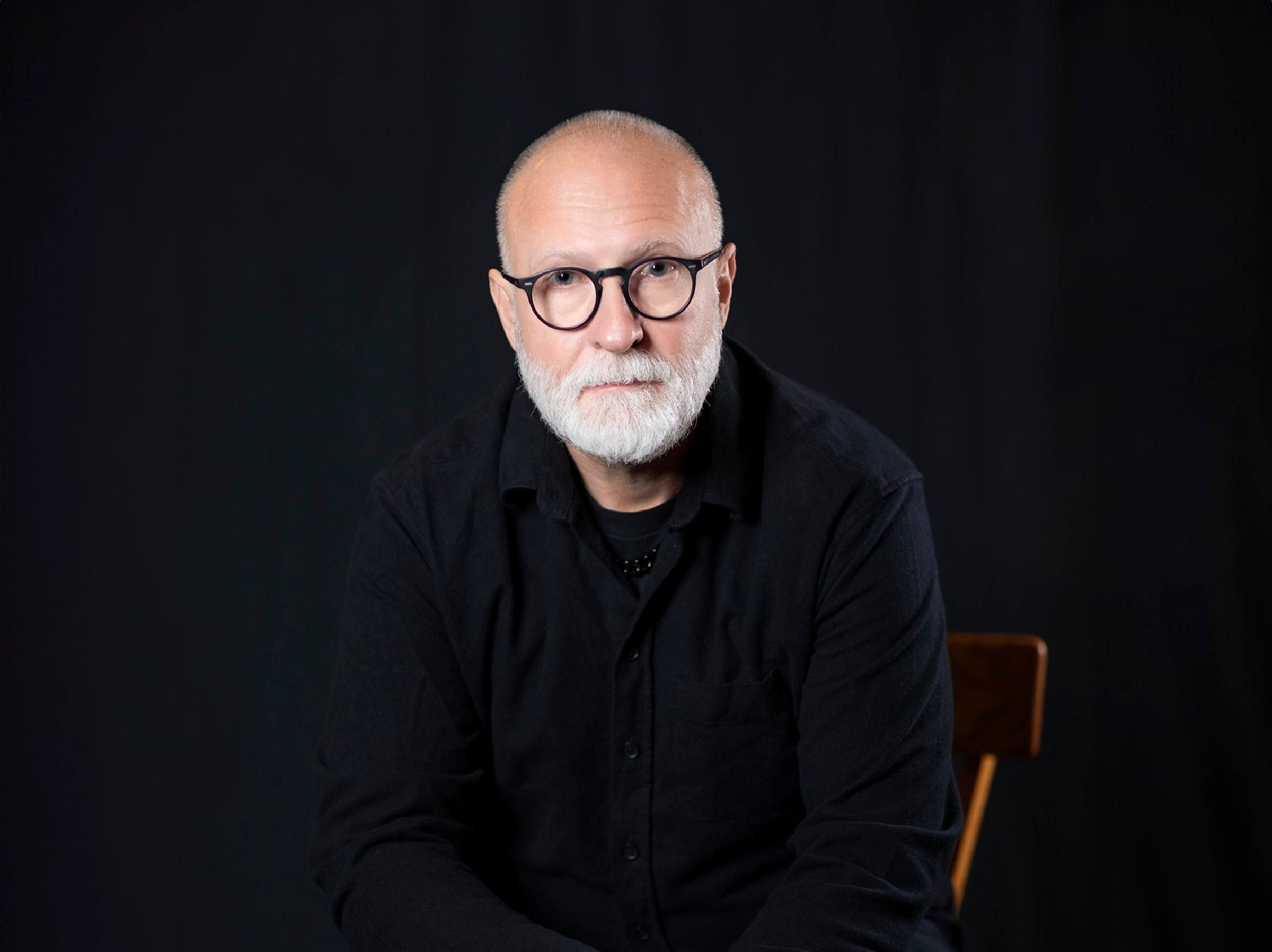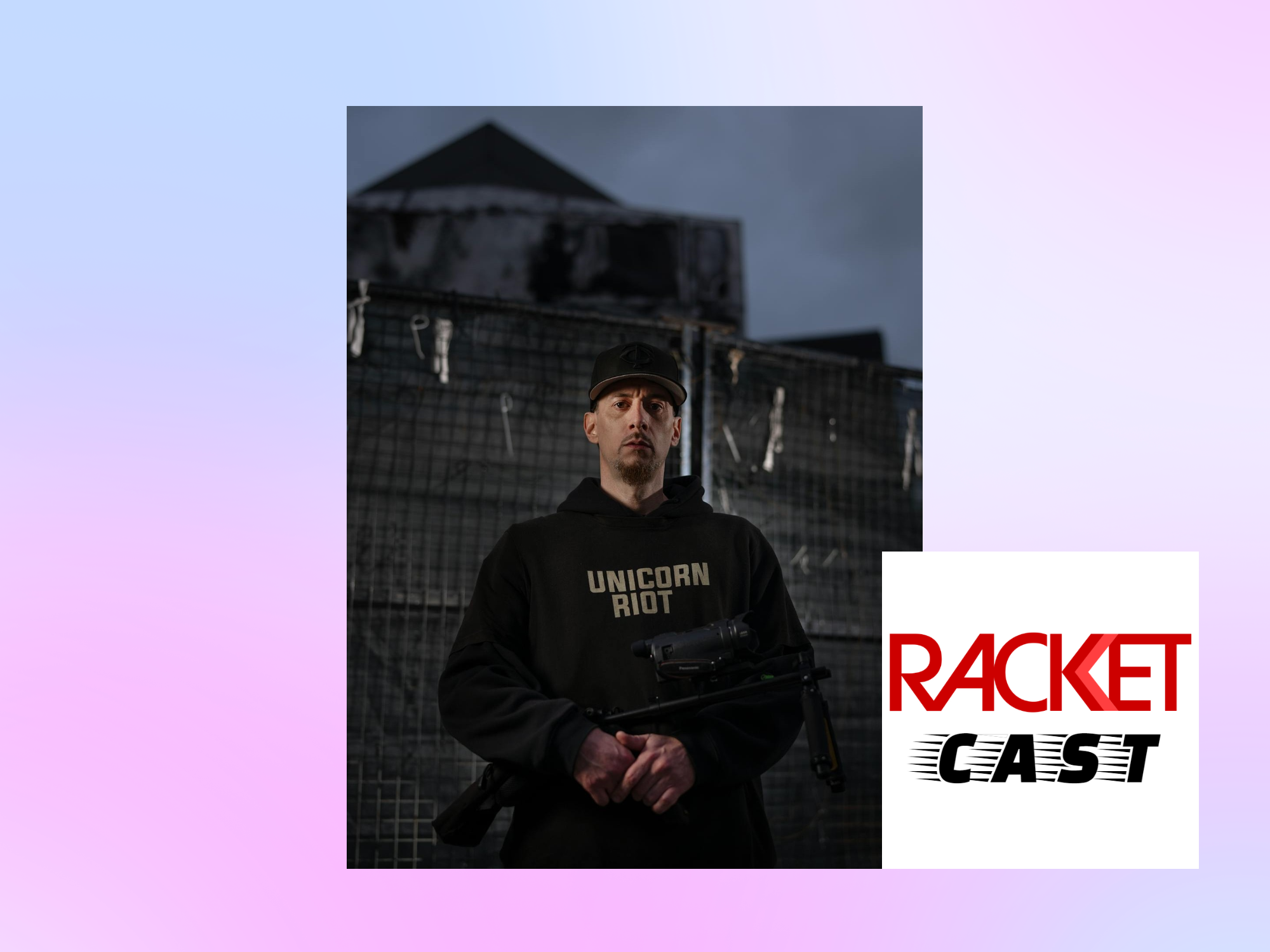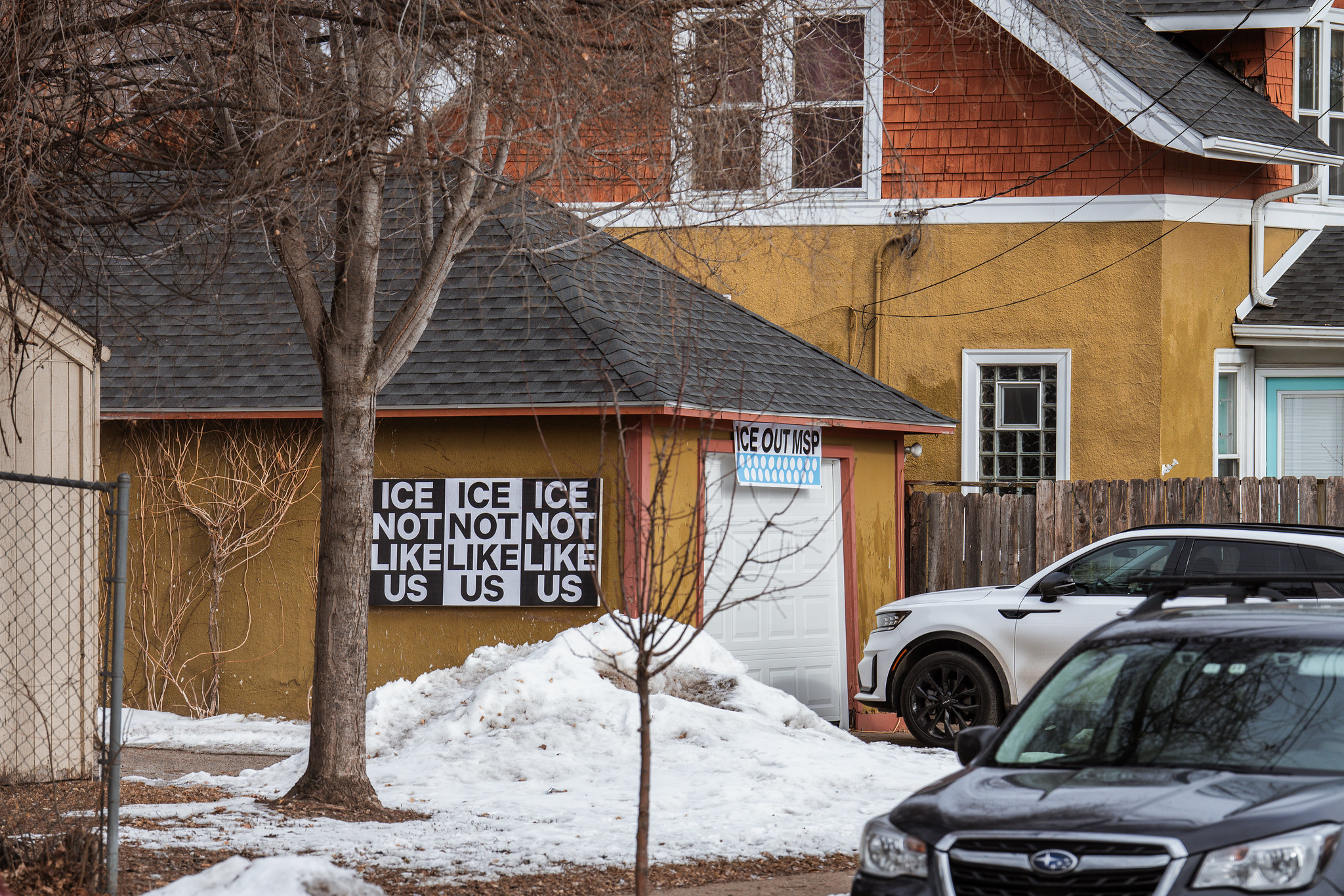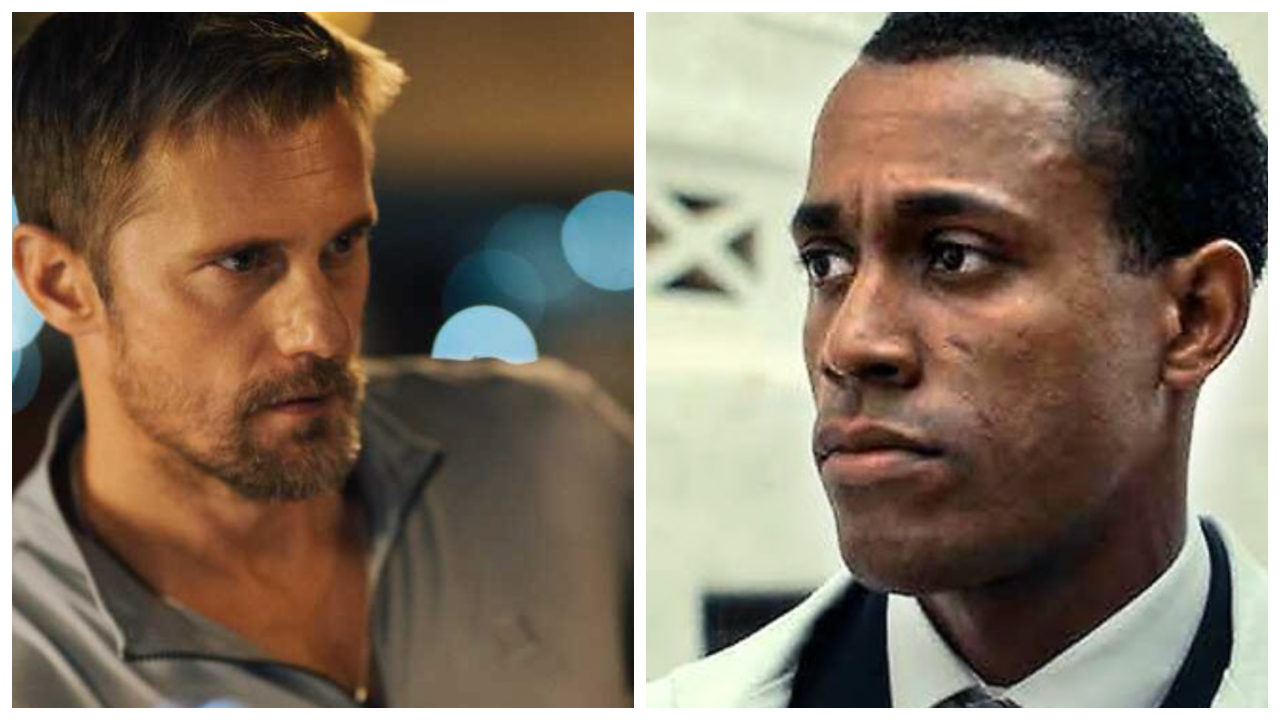Bob Mould’s work with Hüsker Dü made him a legend of Minnesota music, and over the nearly 40 years since the band broke up, he’s demonstrated remarkable staying power. And outside of music, he came out as gay, composed The Daily Show’s theme song, briefly worked as a writer for World Championship Wrestling, and authored an acclaimed memoir, 2011’s See a Little Light.
Mould, who now lives in California, has kept close ties with the Twin Cities, returning to the area on most of his tours, including a memorable stand at First Avenue in 2016, days after Prince’s death. He also drew praise last year from Gov. Tim Walz, who talked up his love for Minnesota’s music tradition, Hüsker Dü included, while running for vice president.
Now 64, Mould is out with a new album, Here We Go Crazy, and a two-month tour in support of it, which will hit St. Paul’s Palace Theater this Saturday. Joining him on the first leg of the tour, although not the St. Paul show, is fellow Minnesota-launched rocker Craig Finn. (Indie vets Poster Children will provide support at the Palace.)
Following this interview, we learned Mould will be back in the Twin Cities next month. Macalester College recently announced that he will receive an honorary degree and deliver the commencement address at its St. Paul campus, where he attended college but didn’t graduate due to an ongoing rock ‘n’ roll detour.
We talked to Mould late last month about the new music, memories of his Twin Cities years, that gig during the mourning of Prince, the current political moment, and much more.
Racket: Where are you calling from today?
Bob Mould: Today I'm in the Southern California desert in Palm Springs, getting my stuff together for a rock tour that starts at any moment.
So, first of all, tell me a little bit about the new album. What’s the big idea behind it? Does it differ from your previous work? And is there any particular thing you wanted to do at this particular moment?
Yeah, with the new album, Here We Go Crazy, we started writing for the record, I guess in the middle of 2020, which was a weird time. Did a little bit of writing, but wasn't able to get out and play any shows until like early '22, I started doing a lot of solo electric touring and test-driving a few of the songs I had. People responded well, and that helped me write the remainder of the record.
I mentioned the Southern California desert. I've been spending time on and off down here. For the past three or four years… it's very different from home, which is San Francisco. The deserts, a lot of open space, a lot of mountains, a lot of stars, a lot of open sky, a lot of quiet.
With the title track, I try to sort of set the stage, giving people time and place and images from what I see every day. And then the record continues through a patch of songs that deal with uncertainty. And then there's a group of songs that are pretty dark and deal with heavy psychological matters. And then the last three songs on the album are hopeful and trying to sort of shine a little bit of bright light, give people a nice ending and give people a little bit of hope.
Structurally, that's what it's about. Sonically, it's pretty familiar. I think people when they hear it, they go, “Yeah, that's Bob Mould when he plays in a three-piece rock band with loud guitars and bright melodies and sort of dark words and lots of energy.”
That's great. Tell me about the stage show. Is this going to be heavy on the new album? Are you going to play stuff from throughout your career?
I’ve had the same rhythm section and the same studio engineer, you know, Jon Worster on drums, Jason Narducy on bass, and Bo Sorensen is our recording engineer. And over the last 13 years, we've made six records together. The live show is loud, it's active, it's physical.
I reach into my entire songbook with this band, but I think this year we're going to take a moment and really focus on those six records I just spoke of that we made together and go a little deeper into cuts on those records. We'll play some older hits as well, but I think it's a good time to sort of memorialize this band and the work that we've done.
So you're playing in St. Paul, at the Palace Theatre. Is that a venue you have any history with?
Yeah, I played there once before. I believe it would have been March 30 of 2019, which was my 40th anniversary of standing on a stage and getting paid to be a musician. So to come back six years later will be a lot of fun.
I mean, I went to school in St. Paul, right? I went to Macalester for three and a half years. So I was St. Paul for the first of my 11 years in the Twin Cities and the Palace is a great place. It's the First Ave folks who oversee that venue, so it's the same high caliber production and, you know, people love to see shows there.
Gov. Tim Walz, when he was running for vice president last year, he gave some interviews where he talked about his musical tastes and he had some nice things to say about you. He talked about being real into your music, especially back in the day. Have you gotten to meet him or speak with him? What were your thoughts about having someone who was running for vice president to talk about your music?
I thought it was amazing when I heard it. I couldn't believe it. So I think it was Beto O'Rourke who did a post on social media talking about Tim Walz and the two of them in D.C. going out in the January mornings to jog. And Beto was saying he was all bundled up like the Michelin Man and Tim was in his shorts and I'm like, yeah, that's legit. So far, so good.
And then he mentioned Tim talking about the Replacements, Prince, and Hüsker Dü, and I was sort of floored. I have not met Tim Walz yet, but I gotta say it really made me feel good… not like, “Oh, look at me,” but the idea that all of us who do this work, write these songs, and tell these stories, and have this, sort of, very fiercely independent-minded life and trying to look at things from a different point of view.
The idea that somebody might end up as vice president who likes that work? It gave me the sense of agency, like maybe we're going to have an administration that, you know, likes music and likes the arts and likes culture and is thinking in a progressive way. It didn't go that way. And I'm very sad that it didn't, not for me, but for all of us. But at that moment to think: Wow, all of this work that I've done just because I love my work, maybe it will make a tiny bit of difference to other people.
Speaking of politics, I read your recent interview with Rolling Stone where you talk a bit about this bleak political moment that we're in right now and how you see it. I know you've kind of gone back and forth over the years with how political you've been, but I guess at this particular moment in time, do you see your role as being someone to comment on that, or more as someone to serve as an escape and help people get away from the bad times?
Well, I think live shows are all about community, right? It's my role as the storyteller, I'm sort of hosting the party with these words and music and people, people who have been following the work for decades and it means the world to them. So yeah, there's a bit of an escape there, but there's a bit of a responsibility for me.
I'll give you an example. Last fall, I went out and was doing some solo electric touring. And in October of ’24, the tour I booked was traveling through the deep South. It was going to Baton Rouge. I was going to Jackson, Mississippi, and Memphis and places where my story is perhaps not in sync with the local politicians.
So, I had a moment where I was like: Well, what can I do with this? I'm a guest. I don't want to spit in the face of anyone. But I would take about five minutes every night in the middle of the show and just tell my personal story and tell my journey, and especially tell people what it was like to be a closeted young gay man in the 1980s. And the challenge that every day of waking up and wanting to stay alive, right? Because when groups of people are being cleaved off and marginalized and demonized and told that they're less than… that's no way to live. Nobody should do that to anyone. And, here we are in 2025, and it feels like that strain of other-ism is really prevalent right now.
Anyhow, it's my job as a storyteller to show people my story. They can then put a face to the story that I tell, like I got gay married two years ago—they're lifelong fans, and they hear me say this from a stage. Perhaps they reconsider some of the things that their neighbors tell them, right? That's all I can do.
So, what were the years like when you lived in the Twin Cities? I know it was the ’80s, basically.
When I came to Macalester, I was fortunate to receive the Poverty Line Scholarship. I grew up in poverty in the Adirondacks. That was September of ’78 and I left the Twin Cities in August of ’89. So I was there for the whole ’80s, basically all the amazing music and the amazing Twins and the amazing North Stars and all that.
What's your relationship to the region these days? I feel like in most of your tours you make it back. Do you have much of a footprint back here still?
Well, we're all getting older. So the amount of friends I have from that time who are living is less each year. I do stay in touch with people there, colleagues and friends outside of music.
When I come back, it always feels like home. I mean, that's where I stepped on a stage with Hüsker Dü and started this ride that I'm on. And I'm always grateful for what the Twin Cities gave to me, you know, the people who helped that band get started and were supportive. And how Hüsker Dü was able to help build a community through the ’80s in the Twin Cities, with bands like the Replacements and Soul Asylum and all the independent labels in Minneapolis that put out great music.
I love coming back and I probably play Minneapolis more than most cities. Minneapolis, Chicago, New York, San Francisco, Berlin—places I've lived, I tend to go back to.
Speaking of Minneapolis gigs of the past, I remember a Facebook post you made, it was when Prince died. I believe you were driving to Minneapolis when you got the word of it, and you played First Avenue that weekend, right?
Yeah. The band had just played Chicago, we were driving up I-94, and we were losing radio outside of Eau Claire. And then we got to the west side of Eau Claire toward the Twin Cities, and we could pick up The Current finally. That was how we heard the news.
It was just sad and shocking. We quickly realized, not for nothing, but this is our off night, and then the next two nights we're playing at First Avenue. We sort of did the math of how emotional all of this would be for everyone. What we didn't see coming was a worldwide press deluge onto the top of First Avenue. It was really heavy and strange. They closed off the street, I think between Hennepin and First Avenue, outside of the club on Seventh Street. There were vigils and people were playing music and, you know, just doing what people do in a time like that. It was crazy to be there for that, really, really crazy.
I understand Craig Finn is on tour with you for part of the tour, although not the Minnesota date. He's kind of, to some degree, taken on the mantle of Twin Cities-related rock—or at least songs that mention the Twin Cities a lot. What are your thoughts on what he's done? And do you talk to him about the Minneapolis scene?
Craig and I are friends. We share a lot of business colleagues. Yeah, I'm a big fan of Craig's work. He's a great storyteller, a very different kind of songwriter than I am; his horizons are much bigger and the characters have more detail. But yeah, we get together and talk about stuff. Not specifically work all the time, but we're friends and we always have a good time. We're going to be hanging out a lot in April, that's for sure.
I want to ask you one thing about your book that I really remember well, about when you worked for WCW—it was a very eventful time in wrestling history. I think you said in an interview a while back that you're really into New Japan Pro-Wrestling. Did you keep up much with wrestling these days? Were you ever kind of in with the wrestling community when you were in Minneapolis?
I grew up in the Adirondacks watching Montreal wrestling in the early '70s. I moved to the Twin Cities, I watched AWA wrestling, and met people in the business there. And that's how I ended up, 15 years later, getting into the business as a creative consultant.
Yeah, I still watch it. I still follow it. It’s WrestleMania season, so it’s all systems go right now with their product. The art form has changed, right? Everybody sort of knows that it's predetermined, that there's cooperation, choreography, writers, and all that kind of stuff. The carnival atmosphere of it has been taken away, but times change, the product changes, and it seems to be doing really well in its current iteration.
I’ve got to ask you about The Daily Show song. When you turn on The Daily Show, does it come into your mind that it's your song? Or has it been so long that it doesn’t?
Always. Every day, every time I hear it, I'm like, “Oh, that's right.” It's very cool, you know, the Minnesota connection. As The Daily Show was being created, there was Minnesota's own Lizz Winstead, one of the co-creators. Lizz and I were tight, and she asked me if I would help out, and I offered her two pieces of music that did not have words, that were not going to make it on the album I was making at that time. I said, yeah, pick one. And they picked “Dog on Fire,” which is now The Daily Show theme, and has been for 29 years.
And they kept the same song, even as they’ve changed hosts.
I'm a fan of the show, I'm a friend of the show, and it's a good fit for all of us. It works good.
Bob Mould
With: Poster Children
When: 7 p.m. Sat.
Where: Palace Theater, 17 W. 7th Pl., St. Paul
Tickets: $46-$59; find more info here






